Decisive vote means “Switzerland has won”
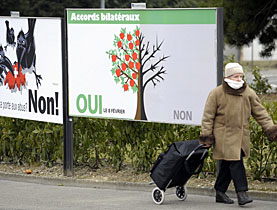
Politicians, diplomats and business leaders are pleased that Swiss voters on Sunday decisively approved a key labour accord with the European Union.
With almost 60 per cent of voters casting ballots in favour of continuing and expanding cooperation with the EU, the results have surprised observers who predicted a much tighter race.
The decisive margin sends a clear message to Brussels that Switzerland wants to foster relations with the EU, especially in the tough economic climate, says Georg Lutz, a political scientist at the Social Science Research Centre in Lausanne.
“In the current situation people are leaning toward stability,” he told swissinfo. “A no vote was seen has having unpredictable consequences. There’s a consensus that people want to have a relationship with the EU and want to keep things stable.”
The vote was closely followed in Brussels because a no vote would have ended a series of economic accords laboriously hashed out between Switzerland and the EU and hampered relations already strained over Switzerland’s banking secrecy laws.
“Swiss rationality has prevailed,” said Michael Reiterer, EU ambassador to Switzerland.
Victory for all
Twenty-two of Switzerland’s 26 cantons approved the accord, which keeps the country’s job market open to EU nations and extends that right to Bulgaria and Romania, two of the bloc’s newest members.
The Swiss cabinet welcomed the result saying it showed that people from across the nation’s cultural divides approved a measure that was in the country’s collective national interests.
“Today Switzerland has won,” said Economics Minister Doris Leuthard.
“I’m very proud to be Swiss this evening,” added Foreign Minister Micheline Calmy-Rey.
“The Swiss population has made a pragmatic choice and is looking toward the future,” Justice Minister Eveline Widmer-Schlumpf said.
The rightwing Swiss People’s Party, which had forced the referendum, also declared a measured victory.
Party President Toni Brunner said that having more than 40 per cent of people vote against the accord still amounted to success, since the party represents slightly less than 30 per cent of the electorate.
People from outside the party must have crossed over to vote in favour of its policies, he said.
Consequences
But the consequences for taking that stand could be dire, Lutz warned, since the vote pitted the party not against the left, but against business leaders who came out overwhelmingly in favour of the accord.
“The People’s Party has lost a hell of a lot of credibility,” he said. “To regain that credibility with the business community, that they are the defenders of economic interests, that may take longer than they hope.”
The People’s Party mounted a populist campaign against the accord on grounds that allowing Bulgarians and Romanians access to the Swiss job market would tax social services, lower salaries and expose the country to more crime.
But Swiss manufacturing and healthcare industries rely heavily on trained foreign workers since the pool in Switzerland – with a population of 7.5 million people – is limited.
The Swiss Business Federation lobbied in favour of the accord and called Sunday’s result “very satisfying” because it would strengthen Switzerland’s economic position. Even in difficult economic times a stable framework with the EU is of big importance, the organisation said in a statement.
The Bulgarian ambassador in Bern, Atanas Pavlov, said he was pleased that the two countries could now deepen their cooperation and economic ties.
He told German language radio that he had a certain amount of understanding for the vote because one fears what one doesn’t know.
“We’re not denying that problems exist,” he said. “But one mustn’t reject others before getting to know them better.”
swissinfo, Tim Neville

More
Free movement of people
Yes: 59.6%
No: 40.4%
Turnout: 50.9%
Sunday’s ballot is the third on a labour accord with EU in nine years.
In 2005 a 56% majority approved the extension of the treaty to ten new member states mainly in eastern Europe.
The first vote in 2000 on the labour accord, which is part of a package of seven bilateral treaties, won a 67% majority at the ballot box.
Switzerland is not a member of the EU but it has concluded 20 major bilateral agreements with the 27-nation bloc.
There are also about 100 secondary bilateral accords between Bern and Brussels.
Negotiations are underway for a bilateral treaty aimed at regulating access to cross-border electricity and a free trade accord on agriculture.
In 1992 voters rejected a plan to join the European Economic Area (EEA), a halfway house to full EU membership.
The free movement of people is just one of several bilateral accords with the European Union and is designed to facilitate trade between the Confederation and the EU, Switzerland’s largest trading partner.
While pollsters had predicted a tight race, the results on Sunday showed that voters in German- and French-speaking Switzerland clearly supported the issue. The Italian-speaking canton of Ticino in southern Switzerland was clear in rejecting it.
Voters there have traditionally been sceptical towards closer relations with the EU and have rejected European issues in the past, including the Economic Area Treaty with the EU in 1992. Experts note that the Ticino labour market is one of the Swiss regions most exposed to international competition and pressure on salaries. Nearly 45 per cent of the workforce there are foreigners.
A former Bulgarian ambassador to Brussels and Bern, Lea Cohen, said that a no vote would have been “Switzerland’s loss” and that most Bulgarians prefer Spain and Britain to Switzerland. She estimated there are about 1,000 Bulgarians currently in the country.
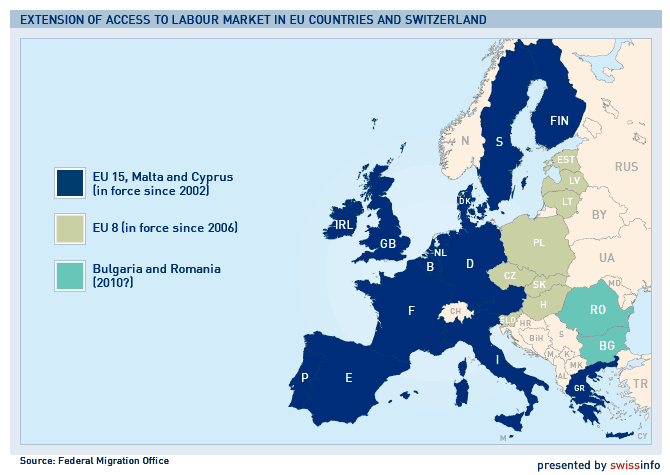
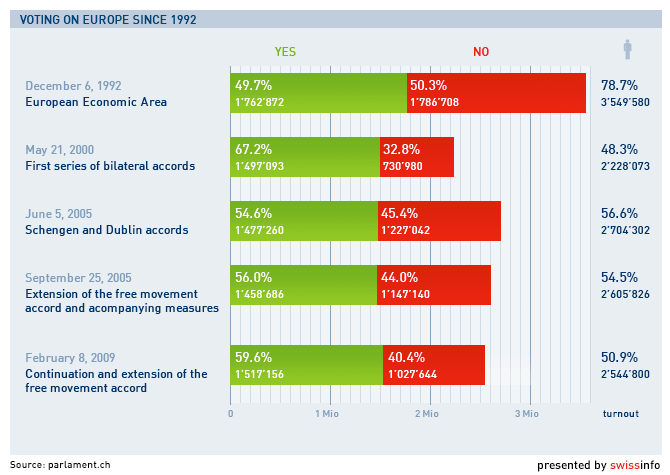

In compliance with the JTI standards
More: SWI swissinfo.ch certified by the Journalism Trust Initiative
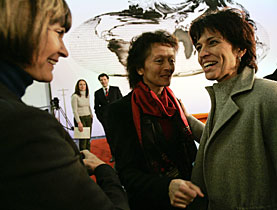
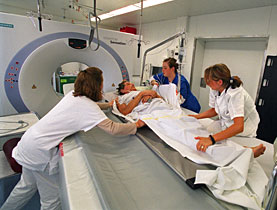
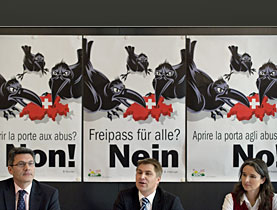
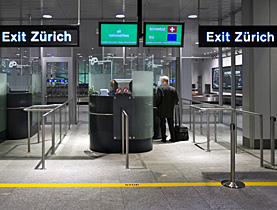
You can find an overview of ongoing debates with our journalists here. Please join us!
If you want to start a conversation about a topic raised in this article or want to report factual errors, email us at english@swissinfo.ch.